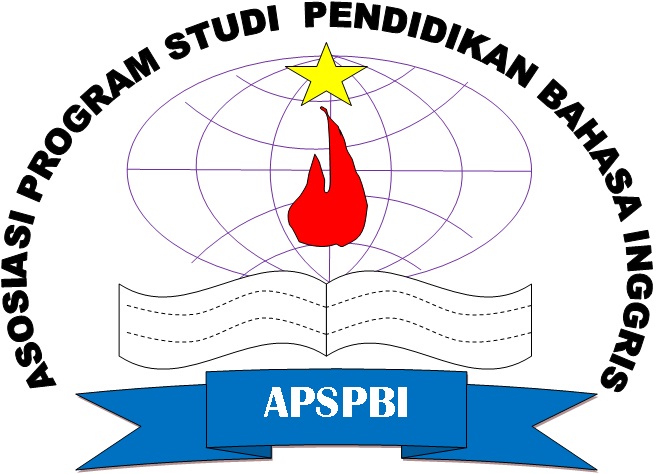Students’ attitude and difficulties in practicing speaking through autonomous learning on podcast
DOI:
https://doi.org/10.28918/erudita.v1i1.4401Keywords:
Attitude, Podcast, Speaking, Autonomous learningAbstract
This research aims to examine the students’ attitude on producing podcasts as a media to practice speaking for autonomous learning and the difficulties faced by students in producing podcast of speaking. This research was descriptive qualitative research and the data is collected using questionnaire and semi-structured interview. As many 28 students of English Education Department of one of public Islamic institution in Central Java in various semesters participated in the questionnaire and 4 students were chosen to be interviewed to validate the information from the questionnaire. The research found that the majority of the students have positive attitude towards producing podcasts activity as their media to practice their speaking. In the affective aspect, students are excited with the process and behaviorally they are encouraged to prepare the material well. In the cognitive aspect, students consider the activity of producing podcast is a great activity for beginner students. They are assisted to autonomously practice speaking without partner which allows them to evaluate their own quality of speaking particularly in pronunciation. Students faced many difficulties such as speaking anxiety, complex preparation, and the inconvenience of doing repeated recording.
References
Alfa, R. R. (2020). Using podcast as authentic materials to develop students’ speaking skill. Journal of English Language and Language Teaching, 4(1),
-74. https://doi.org/10.36597/jellt.v4i1.7692
Afisa, S. (2015). The students’ difficulties in speaking at tenth grade of SMA Negeri 1 Sine in 2014/2015 academic year [Bachelor’s thesis, Universitas Muhammadiyah Surakarta]. UMS Library. http://eprints.ums.ac.id/34624/
Broughton, G., Brumfit, C., Flavell, R., Hill, P., & Pincas, A. (2003). Teaching English as a foreign language (2nd ed.). Routledge.
Brown, H. D. (2004). Language assessment: Principle and classroom practices. Pearson Education.
Brown, H. D. (2014). Principles of language learning and teaching (6th ed.). Pearson Education.
Chan, V., Mary, S., & Gilliah, H. (2002). Autonomous language learning: Hong Kong tertiary students’ attitudes and behaviours. Evaluation & Research in Education, 16(1), 1-18. http://dx.doi.org/10.1080/09500790208667003
Flick, U. (2004). A companion to qualitative research. Sage Publications, Inc.
Hamzaoglu, H., & Kocoglu, Z. (2016). The application of podcasting as an instructional tool to improve Turkish EFL learners’ speaking anxiety. Educational Media International, 53(4), 313-326. http://dx.doi.org/10.1080/09523987.2016.1254889
Khotimah, K., Widiati, U., Mustofa, M., & Ubaidillah, M. F. (2019). Autonomous English learning: Teachers’ and students’ perceptions. Indonesian journal of Applied Linguistics, 9(2), 371-381. https://dx.doi.org/10.17509/ijal.v9i2.20234
Kohar, E., Salam, U., & Sumarni. (2014). Students’ perception towards the use of podcast for learning English. Jurnal Pendidikan dan Pembelajaran Khatulistiwa, 3(12), 1-15. https://jurnal.untan.ac.id/index.php/jpdpb/article/view/8501
Kothari, C. R. (2004). Research methodology: Methods and techniques. New Age International, Ltd.
Little, D. (1995). Learner autonomy: Definition, issues, and problems. Authentic Language Learning Resources, Ltd.
Lutfi, N. (2020). The Integration of MALL to enhance students speaking skill: An Autonomous learning model. Journal of Foreign Language Teaching & Learning, 5(1), 1-19. https://doi.org/10.18196/ftl.5144
Mandasari, B., & Aminatun, D. (2019). Uncovering students’ attitude toward vlogging activities in improving students’ speaking ability. Journal of English Education and Applied Linguistics, 8(2), 214-225. http://dx.doi.org/10.24127/pj.v8i2.2241
Miles, M. B., & Huberman, A. M. (1994). Qualitative data analysis: An expanded sourcebook (2nd ed.). Sage Publications, Inc.
Phillips, B. (2017). Student-produced podcasts in language learning: Exploring students’ perceptions of podcast activities. IAFOR Journal of Education, 5(3), 157-171. https://doi.org/10.22492/ije.5.3.08
Rahmasari, W., Ahmad, Y., & Kamil, A. (2021). Students’ perception on utilizing podcast in learning speaking. Journal of Applied Studies in Language, 5(1), 101-107. https://dx.doi.org/10.31940/jasl.v5i1.2379
Richards, J. C. (2015). Technology in language teaching today. Indonesian Journal of English Language Teaching, 10(1), 18-32. http://dx.doi.org/10.25170%2Fijelt.v10i1.654
Samad, I., Bustari, A., & Ahmad, D. (2017). The use of podcast in improving students’ speaking. Journal of English Language and Education, 3(2), 97-111. https://doi.org/10.26486/jele.v3i2.256
Suparjan, Regina, & Sudarsono. (2016). Students’ attitudes towards the use of podcast for English language learning: A case study at Tanjungpura University. Jurnal Pendidikan dan Pembelajaran Khatulistiwa, 5(3), 1-15. https://jurnal.untan.ac.id/index.php/jpdpb/article/view/14152
Warschauer, M., & Liaw, M. (2011). Emerging technologies for autonomous language learning. Studies in Self-Access Learning Journal, 2(3), 107-118. http://sisaljournal.org/archives/sep11/warschauer_liaw
Yandi, F. (2015). Attitudes towards learning English: A study of second year students at Banyubiru 1 State Junior High School [Master’s thesis, Satya Wacana Christian University Salatiga]. UKSW Repository. https://repository.uksw.edu/handle/123456789/10581
Zulfikar, T., Dahliana S., & Sari, R. A. (2019). An exploration of English students’ attitude towards English learning. English Language Teaching Educational Journal, 2(1), 1-12. https://doi.org/10.12928/eltej.v2i1.947
Downloads
Published
How to Cite
Issue
Section
License
Copyright (c) 2021 Nurunnisa Rachma Buana, Miftachudin

This work is licensed under a Creative Commons Attribution-ShareAlike 4.0 International License.















